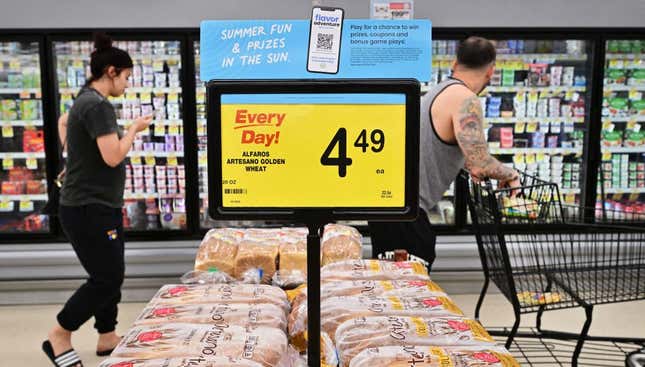
The Inflation Reduction Act recently passed in the Senate aims to provide relief for American families dealing with higher rents, gas prices, and food. While inflation stays at a 40-year high, Black, Latino, and Native American families have been getting hit the hardest. A national poll conducted by NPR, the Robert Wood Johnson Foundation, and the Harvard T.H. Chan School of Public Health shows half of Black and Latino households say recent price increases driven by inflation have caused them “serious financial problems.”
More than 4,100 adults were interviewed for this poll between mid-May and mid-June this year. Some will point to the wide-ranging societal disparities that have been going on for decades. Still, co-director of the survey and emeritus professor at the Harvard T.H. Chan School, Robert J. Blendon, says the recent height of inflation is making matters worse.
“We’ve been looking at disparities for many years, but the acute needs caught us a bit off guard,” he says. “In this period when we’re all suffering from inflation, people are at high risk for either being homeless or actually not being able to feed their families.”
Regarding emergency savings, most Black and Latino households said they did not have enough to cover at least one month of expenses. More than 40% of Black and Native American adults and 36% of Latinos say they are having trouble making on-time payments for credit cards and loans.
Rents are 27.6% higher than in June 2019, and the U.S. is currently experiencing a massive shortage in affordable housing. While the poll states that more than 60% of adults say the lack of affordable housing is an increasing burden on Black and Latino renters. 16% of Black renters say they have either been evicted or threatened with eviction. Only 9% of white renters expressed they went through the same issues.
While food costs have dropped in July, the price index is still 13.1% higher than in July 2021. As the poll shows, about a third of Black and Latino adults and 40% of Native American families said they were struggling to put food on the table. This is compared to 21% of white families who said the same thing.
In terms of health care, the high costs have been disrupting bank accounts all across the spectrum. The pandemic did not help matters in delaying routine maintenance for millions of families of color. More than 20% of Black and Native American adults say affording medical care or prescription drugs is a severe problem.
The non-extension of the school free lunch program, the enhanced child tax credit, and any progress made from stimulus payments are all problems that will continue to hurt people of color as we head toward the end of 2022.
“There is a crisis of inflation and also in the public schools,” says Blendon. “It’s more than just ‘We’re narrowing gaps’ or ‘We’re not narrowing gaps.’ It’s that people could really get hurt unless they can get some help here in the next short-term period.”

